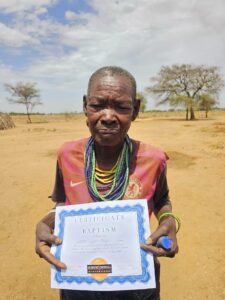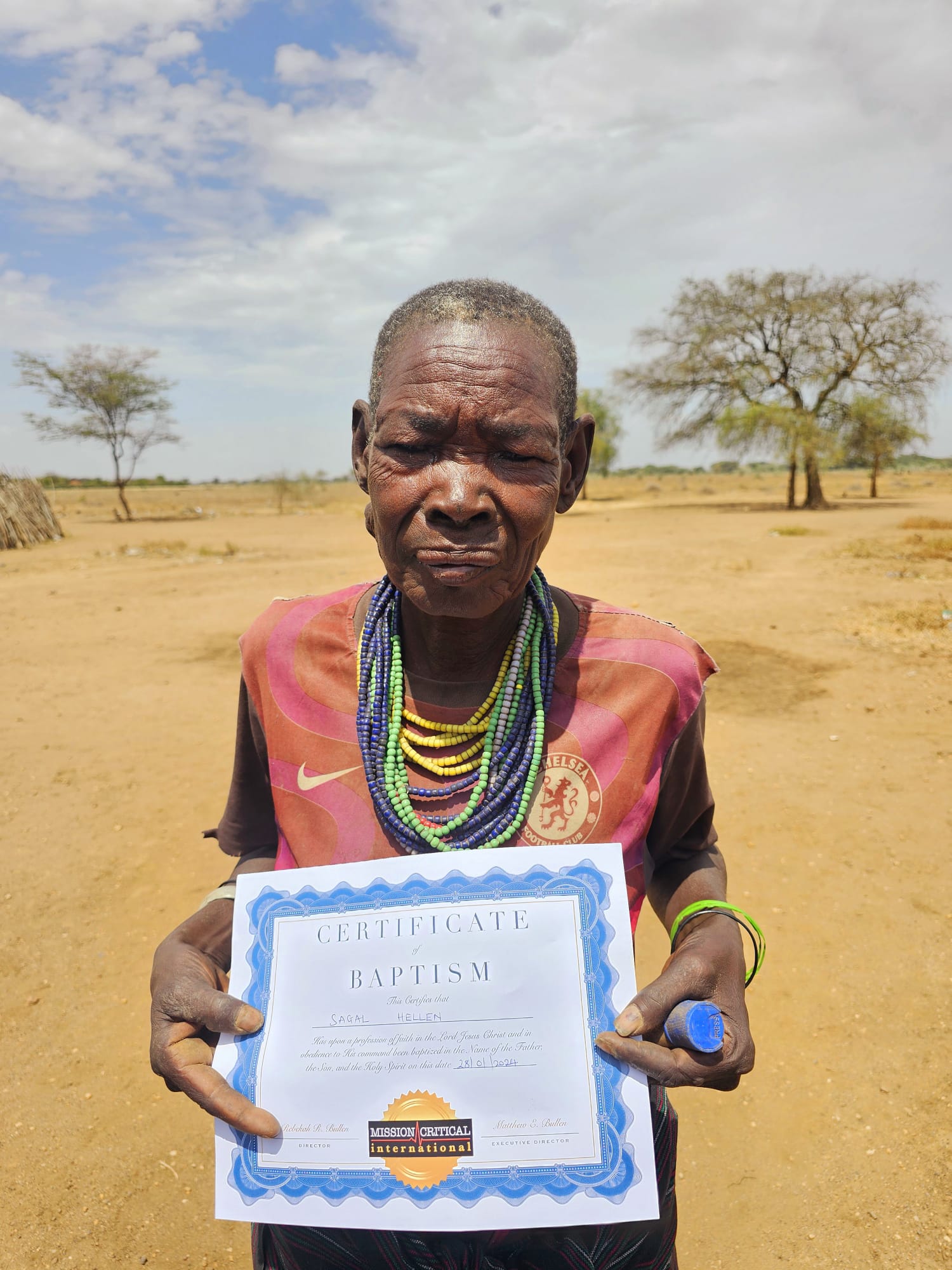Transformation by Floris Bijlsma of the Netherlands
 She doesn’t know exactly how old she is, but Sagal assumes she’s around 65, which is considered very old due to the poor living conditions in the area. She resides in the village of Atedeoi, situated fifteen kilometers outside Moroto, where huts with thatched roofs are common and surrounded by a fence made of branches.
She doesn’t know exactly how old she is, but Sagal assumes she’s around 65, which is considered very old due to the poor living conditions in the area. She resides in the village of Atedeoi, situated fifteen kilometers outside Moroto, where huts with thatched roofs are common and surrounded by a fence made of branches.
As a child, she grew up believing in ancestral spirits, as is customary in Karamojaland, where these spirits are thought to inhabit trees or reside near rivers. Men are traditionally responsible for worshipping these spirits at a shrine, usually located some distance outside the village. In the past, the deceased were not buried but rather tied to tree trunks, allowing wild animals to consume the body, with the bones eventually scattered over a large area, signifying that the soul remained in the tree.
In times of trouble, such as drought, men seek guidance from spiritual healers to appease the ancestral spirits, believed to be punishing the community. Advice may involve sacrificing a cow or goat in a designated manner and place. In the past, human sacrifices were not uncommon but are now illegal. Sagal recalls witnessing such practices.
The introduction of a Catholic church in the area intrigued Sagal, prompting her to attend out of curiosity. She found solace in the faith’s teachings, particularly its emphasis on regular worship and overarching spiritual strength. However, her parents, like many others of their generation, opposed her Christian faith, viewing it as a challenge to their authority and village traditions. Weekly church attendance clashed with their agricultural responsibilities and societal expectations, making it difficult for Sagal to openly practice her faith.
Despite her parents’ disapproval, Sagal maintained her connection to Christianity, occasionally attending church services clandestinely. Marriage and motherhood further constrained her ability to participate actively in religious activities, as women bore the bulk of domestic responsibilities. Meanwhile, her husband adhered to traditional practices, seeking guidance from spiritual healers during crises.
The arrival of the Pentecostal Church brought significant change to Sagal’s life. With services held in the village under a tree, faith became more accessible, leading to a deepening of her religious convictions. While some men resisted the church’s teachings, others recognized its tangible benefits, such as community support and aid for the disadvantaged.
Amidst societal shifts, Aleper observed a blending of old traditions with Christianity within her village. Despite initial resistance, more men and women embraced the Pentecostal faith, drawn by its perceived power and tangible benefits.
As the region grappled with the COVID-19 pandemic, Sagal witnessed a resurgence of traditional rituals alongside church services, reflecting the community’s desperation for divine intervention. With the pandemic’s wane and improved living conditions, interest in church services surged again, reinforcing villagers’ gratitude and faith in God’s protection.
Motivated by a desire for spiritual closeness, Sagal decided to be baptized, symbolizing her complete surrender to God. The baptism ceremony, held in the Nakiloro River, marked a significant spiritual milestone for her, providing a newfound sense of peace and liberation from life’s worries. For Sagal, the transformation from Sagal to Hellen represents the most profound change she has experienced, signifying her deepening faith and personal growth. – Transformation by Floris Bijlsma of the Netherlands
